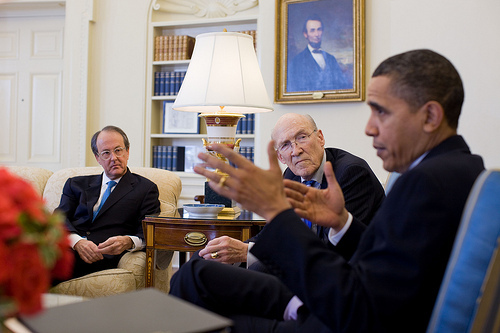| Home | About | Archives | RSS Feed |

The Independent Investor: Hi Yo Silver
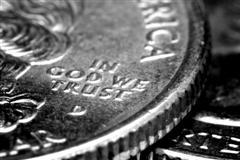 Gold is at record highs this year but silver is barely back to where it was 30 years ago. As the spin doctors out do each other in bumping up their price targets for the "other" metal, I am going to stick to my guns. Silver is just $6 an ounce short of my price target.
Gold is at record highs this year but silver is barely back to where it was 30 years ago. As the spin doctors out do each other in bumping up their price targets for the "other" metal, I am going to stick to my guns. Silver is just $6 an ounce short of my price target.
Back in 2008 when silver hit $20 an ounce and gold topped $1,000 for the first time, I recommended investors take profits. That turned out to be sage advice since both metals dropped precipitously. Silver fell to almost $9 an ounce. I promptly recommended purchasing it again. Once the price returned to $20 an ounce, I suggested that silver could reach $36-$37 before pulling back again. This week silver topped $30 an ounce before falling 5 percent.
There are several explanations for why silver has had such a great run this year. Silver's largest end-users are the electrical and electronic sectors. Both are now emerging from recession and industrial demand for the physical metal is rising. Jewelry demand for silver has also picked up. The price of gold has soared, making silver a less expensive alternative for shoppers.
The creation of silver exchange-traded funds (ETFs) has opened up a new source of demand for bullion as well. Up until 2006, investors interested in purchasing silver were required to buy and store bullion through a bullion desk, or go to a jeweler or trade in the futures market. The advent of silver ETFs greatly expanded the silver market and offers investors a low-cost, liquid way of investing. As more and more investors purchase these silver ETFs, the funds must buy up additional quantities of silver or silver stocks, sending prices up even further.
Silver does offer some protection against potential inflation as a physical and transferrable store of value. It is the same argument that is behind the price increases we have experienced for all commodities from gold to pork bellies.
Gold and silver pros often keep an eye on the price ratio between the two metals. Up until 2008, it typically required 55 ounces of silver to buy one ounce of gold. Today that ratio is roughly 47 ounces. Silver has been outperforming gold all year but historically, (over 10 years) when that ratio hits 40, silver starts to underperform gold.
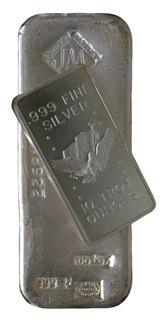 Like gold, silver can be purchased in a variety of forms. Some investors buy coins, others actually buy and store 100-ounce silver bars. These physical silver options trade at a premium to the silver price and storage costs eat into profits. One can also buy silver stocks, precious metals mutual funds and/or exchange traded funds that offer investors the option of stocks, futures or bullion without the storage fees or premiums.
Like gold, silver can be purchased in a variety of forms. Some investors buy coins, others actually buy and store 100-ounce silver bars. These physical silver options trade at a premium to the silver price and storage costs eat into profits. One can also buy silver stocks, precious metals mutual funds and/or exchange traded funds that offer investors the option of stocks, futures or bullion without the storage fees or premiums.
There is also the junk silver market: U.S. quarters, dimes and half-dollars minted before 1965. These coins have no collectable value since they are worn, scratched, chipped and otherwise damaged. This wear and tear has reduced their silver content. On average, they now contain only 71.5 ounces of silver down from the 90 percent when first minted. These old coins are sold in bags of either $100 or $1,000 face value and tend to outperform silver bullion.
Now you have a better idea of why silver is where it is. But remember, the most important lesson in investing in silver or any other commodity is to know when to sell. My price target remains $36-$37 an ounce. If I were a cautious investor, I would not wait until that price range is reached. Remember, too, that commodity prices can drop sharply and in a blink of an eye. A 10 to 20 percent drop in a week is entirely within reason, especially after a big run-up so buyers beware.
That doesn't mean that the bull market in silver is over but it could mean a sharp decline followed by a period of consolidation.
Bill Schmick is an independent investor with Berkshire Money Management. (See "About" for more information.) None of the information presented in any of these articles is intended to be and should not be construed as an endorsement of BMM or a solicitation to become a client of BMM. The reader should not assume that any strategies, or specific investments discussed are employed, bought, sold or held by BMM. Direct your inquiries to Bill at 1-888-232-6072 (toll free) or e-mail him at wschmick@fairpoint.net. Visit www.afewdollarsmore.com for more of Bill's insights.
| Tags: metals, silver, ETF |
@theMarket: Break Out
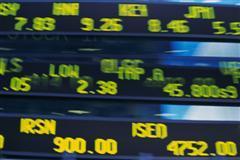 It would appear that November's pull back in the stock market is over. From top to bottom, the S&P 500 Index lost 4.5 percent and regained 3 percent of that in just the last two days. That feels to me like a break out.
It would appear that November's pull back in the stock market is over. From top to bottom, the S&P 500 Index lost 4.5 percent and regained 3 percent of that in just the last two days. That feels to me like a break out.
Having gone from oversold to overbought in less than one week, I would suspect that a small dip in the averages is warranted, but that would only be an opportunity to buy in my opinion. Last week, I advised investors not to be too worried about last week's sell-off. I had a hunch that new data would indicate that the economy is improving. That turned out to be the case. I expect a continued stream of better news on the economy over the next few months that will surpass most investor's expectations.
In my last column, I wrote that "the only possible fly in the ointment I see right now is the failure of Congress to act on the looming expiration of the Bush tax cuts." I implored readers to put their legislators on notice that the tax-cut extensions were their No. 1 priority. Washington must have been reading my columns because on Monday morning both parties met and began working on that extension. With luck, it looks like a compromise could be reached before Christmas.
At the same time, the president's deficit reduction team presented a variety of far-reaching ideas to cut the deficit (see Thursday's column "And Now for That Deficit"). Between those developments stateside, plus the potential bailout of Ireland as well as some strong industrial production numbers from China, set us up for a rally.
Although we have yet to break above April's highs in the S&P 500 Index, over on the NASDAQ we have breached that barrier, as has the Dow. The consumer discretionary, industrial, energy and materials sectors have all broken out to bull market highs as well this week. These sectors all appear to be in a solid uptrend, despite looking a bit extended on a short term basis. Financials continue to move sideways as do some of the more defensive sectors such as utilities, health care, consumer stables and telecom.
Bullish sentiment has also been rising but is still below 50 percent, although next week's figure from the American Association of Individual Investors may show a bigger increase after this recent rally. As a contrarian indicator, bullish sentiment is not yet at worrisome levels.
Remember too that the bulls have the wind at their backs. The economy is growing, (despite the high unemployment rate) as businesses begin to invest in plant and equipment. Although the housing market is bumping along the bottom, it is at least stabilizing, and exports are growing thanks to the weakening dollar. Finally remember that Fed Chairman Ben Bernanke is on record in wanting stock prices higher (see "Don't Fight the Fed" ). All in all, that is a powerful combination that should drive the markets higher. How high?
On the S&P 500 Index 1,300 is a good round number. That's a potential gain that might even entice some of those investors sitting in bonds to come out and play in the equity markets. As for where I see the most potential gains: emerging markets, mines and metals, energy, technology and possibly real estate are my bets.
Bill Schmick is an independent investor with Berkshire Money Management. (See "About" for more information.) None of the information presented in any of these articles is intended to be and should not be construed as an endorsement of BMM or a solicitation to become a client of BMM. The reader should not assume that any strategies, or specific investments discussed are employed, bought, sold or held by BMM. Direct your inquiries to Bill at 1-888-232-6072 (toll free) or e-mail him at wschmick@fairpoint.net. Visit www.afewdollarsmore.com for more of Bill's insights.
| Tags: tax cut, deficit, housing |
The Independent Investor: And Now For That Deficit
|
President Obama speaks with Erskine Bowles, left, and former Sen. Alan Simpson in February before announcing their appointment to the deficit-reduction commission in this White House photo. |
The lame-duck Congress is finally getting to work. The president is horse trading with the Republican majority to extend the bush tax cuts before the end of the year. At the same time, the Obama budget deficit commission has released its findings and the full 18-member panel will vote on these proposals on Friday. Be prepared for some fireworks.
When the President Obama first appointed the bipartisan panel led by Erskine Bowles and former Sen. Alan Simpson, to come up with ideas to cut the exploding deficit, I wrote that we would have to wait until after elections before their findings would be revealed. Given some of the radical suggestions these deficit doctors have suggested I can understand why they are only now being revealed.
At long last the "untouchables" are on the table; those sacrosanct programs that no politician has had the guts to address in my lifetime. Taboo subjects such as Medicare, Medicaid, Social Security, farm subsidies, defense spending and mortgage interest rate deductions are on the table. If accepted in its entirety (and it won't be), the plan would reduce the deficit by $3.89 trillion between 2012 and 2020. The current national debt is about $13.9 trillion.
Here are some of the high points. Our complicated tax system and tax brackets would be collapsed into three brackets – 12, 22 and 28 percent. Itemized deductions would be eliminated; capital gains would be taxed as ordinary income. Contributions to tax-deferred accounts would be capped at 20 percent of income or $20,000, whichever is lower.
Although the plan would reduce income tax rates, there would be a price to pay. Your mortgage interest deduction would disappear, gas would be taxed at a higher rate, the retirement age of Social Security would increase and benefits for both Medicare and Medicaid will be cut. Over on the corporate side, taxes would be reduced as well to 28 percent from 35 percent. But employer provided health care exclusions would be capped and phased out altogether by 2038.
Now before you take sides on what you like or dislike about the proposals, understand that just about every interest group, every age group, every demographic profile you can come up with will both gain and lose by these proposals. Lobbyists will trash those proposals that threaten their clients and promote those that don't. On an individual level, I who have just purchased a home (and therefore a mortgage) in Pittsfield while less than five years away from social security and Medicare, will want my representatives to vote against those proposals but vote for a reduction in my income taxes.
You, my dear reader, will have your own agenda and want the deficit reduction to play out in a way that benefits you but takes nothing away from what you already have now.
This would be a mistake.
Our deficit is out of control. Many Boomers, their heads stuck in the sand, believe that if we pretend to ignore it, the deficit will soon become the problem of our future generations. We have gotten into the habit both individually and as a nation of kicking the can down the road. We mouth statements like "I'm glad I'm not growing up in America today" or "kids today will just have to work harder" or "our generation supported them, now it's their turn."
Maybe prior to the financial crisis, that short-sighted attitude would have worked. Now, several trillion dollars in debt later, the hard, sober facts are that if we don't make the sacrifices now to reduce the deficit dramatically, the Boomer generation is going to get clocked at the time when they can least afford it — in retirement. We share a number of economic and social conditions that could quite easily put us in the same position as Ireland, Italy, Spain and Greece. It wouldn't take much for our big lenders, like China and Japan to go on a debt buyer's strike, especially if the deficit continues to grow.
Nations around the world have already warned us of this possibility. Actions to replace the dollar by a basket of currencies are simply another warning shot across our bow. If the deficit continues to rise while America once again backs away from the hard choices we have to make in deficit reduction, then we will all see a spike in interest rates that will make your hair stand on end. Those rates will drive the economy into a depression and the stock market to new lows. Your retirement savings will disintegrate and we baby boomers will be bagging groceries at the supermarket at age 85 — if we are lucky.
So what's it going to be?
Bill Schmick is an independent investor with Berkshire Money Management. (See "About" for more information.) None of the information presented in any of these articles is intended to be and should not be construed as an endorsement of BMM or a solicitation to become a client of BMM. The reader should not assume that any strategies, or specific investments discussed are employed, bought, sold or held by BMM. Direct your inquiries to Bill at 1-888-232-6072 (toll free) or e-mail him at wschmick@fairpoint.net. Visit www.afewdollarsmore.com for more of Bill's insights.
| Tags: deficit, taxes, retirement |
@theMarket: Black Friday In More Ways Than One
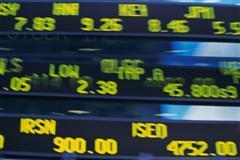 As 138 million Americans planned their Thanksgiving holiday assault on the nation's willing retail emporiums today, others around the world are working on a more lethal stratagem that has investors more concerned than thankful.
As 138 million Americans planned their Thanksgiving holiday assault on the nation's willing retail emporiums today, others around the world are working on a more lethal stratagem that has investors more concerned than thankful.
North Koreans greeted our Black Friday with their own version of a 21-gun salute as they bombarded the disputed waters around Yeonpyeong Island even as our U.S. commander in South Korea, Gen. Walter Sharp, was on the island inspecting this week's provocation by the North. The ongoing dispute follows the sinking of a South Korean submarine eight months ago in the same territory of the Yellow Sea. Asian markets sold off as tensions escalated.
There was not much Thanksgiving cheer in Southern Europe either as European debt worries escalated. You would think that now that Ireland has accepted a bail out from the EU, things would calm down. Instead, investors worried about which nation would be next on the list to cry for financial help. Portugal, it seems, is now the center of attention with Spain and Italy still waiting in the wings. Most European markets were trading down as U.S. markets opened on this holiday-shortened Friday.
I wouldn't make too much out of the sell-off. Readers may recall last year's sell-off on the same day as a result of a perceived financial crisis in the Middle East. The following week all the losses suffered that day were quickly regained and then some. As I cautioned readers last week, this pullback may have a bit more to go before the markets are ready to resume their climb.
On the plus side, our own economy appears to be gathering strength with unemployment dropping, consumer spending rising and consumer confidence regaining its footing. As the economic data continues to improve I expect it will provide firm support for further upside in the world’s stock markets. I guess the only possible fly in the ointment I see right now is the failure of congress to act on the looming expiration of the Bush tax cuts. As readers know, I have written about the predicted logjam in Washington that I fear is now upon us.
It is unbelievable to me that politicians will allow these cuts to expire at the end of the year. The Democrats argue that only the middle class should escape the tax increase while the Republicans want everyone including the "rich" (defined by those families who make more than $250,000 a year) to be spared the horrendous increase in taxes. In my opinion, if nothing is done and we all greet the New Year far poorer than we already are, the economy will most definitely suffer.
What rebound we are beginning to experience now will be short-circuited. Consumer confidence will falter and with it the stock market, housing and job growth. The actions of the lame-duck Congress since the elections have not given me a lot of confidence that the two sides will be willing to compromise on anything given the legislative stalemate that has occurred thus far. One can only hope that our elected officials will begin to act and do what is best for the country. As it stands, both sides seem to be preparing for re-election in two years as opposed to governing in the here and now.
At Thanksgiving dinner among friends and family in Pittsfield, both young and old were glum about the prospects for compromise within the government. We all agreed that this country needs term limits and needs them now as a possible start to electing leaders and not career politicians. However, that's not going to get the tax cuts expended by the Christmas holidays. I suggest we all write to Santa this weekend with those extensions at the top of our wish list. In the meantime, I hope you all had a great Thanksgiving.
Bill Schmick is an independent investor with Berkshire Money Management. (See "About" for more information.) None of the information presented in any of these articles is intended to be and should not be construed as an endorsement of BMM or a solicitation to become a client of BMM. The reader should not assume that any strategies, or specific investments discussed are employed, bought, sold or held by BMM. Direct your inquiries to Bill at 1-888-232-6072 (toll free) or e-mail him at wschmick@fairpoint.net. Visit www.afewdollarsmore.com for more of Bill's insights.
| Tags: Congress, overseas, economy |
@theMarket: The Dog That Wags the Tail
 It is becoming clearer by the day that the U.S. is no longer the Big Dog in financial markets. Ten years ago what happened overseas would have little if any impact on U.S. markets. Today most traders won't make a move without first checking overseas markets.
It is becoming clearer by the day that the U.S. is no longer the Big Dog in financial markets. Ten years ago what happened overseas would have little if any impact on U.S. markets. Today most traders won't make a move without first checking overseas markets.
Last week, I warned that we were in for at least a 5 percent correction and so far we've pulled back 4.4 percent on the S&P 500 Index. I expect continued choppiness through the holiday shortened week with a bias to the downside. There is a possibility that the markets could overshoot and register as much as 6-7 percent drop. I would buy that dip if it occurs.
This correction is a great example of how things have changed. It was countries such as China, Korea and Ireland, not America, which have dictated the turns in our markets.
Over the last two weeks (coinciding with the downturn in U.S. markets), the Chinese government had announced new efforts to slow its nation's growth. China fears that its economy is overheating. Inflation is already running at 10 percent and its citizens are actually hoarding all kinds of stuff from foods to gold to lumps of coal. The real estate market is also out of control and continues to rise each month despite the government's best efforts to slow its ascent. The government has threatened to raise interest rates, tighten monetary policy and take even more draconian methods such as selling commodities on the open market by the shiploads if necessary.
South Korea raised rates twice in two weeks for the same reason. Since April, (when we experienced a serious market pullback) a number of other foreign countries from Australia to Thailand have done the same thing in an effort to reign in their economies.
Markets here have declined in response to these moves because we have now become dependent on these countries for everything from supporting our deficit spending (by buying U.S. Treasury bonds) to the toilet seats in our bathrooms. Many Americans worry that we have traded our economic future for the short-term comforts of cheaper goods, living beyond our means and the "not in my back yard" attitude towards industrial expansion.
"The U.S. is rapidly becoming just another Third World power," laments a 90-year-old retired investor who I make a practice of calling every month or so.
No, he's not a client, but I find his perspective refreshing and his comments pregnant with wisdom and experience. Normally, you don't hear that kind of comment from someone whose family practically built Pittsfield; who was a hero of World War II, and who came home to become one of the county's pillars of industry.
He enumerated all the obvious failings: corrupt politicians, the disappearance of industry, the stratification of classes, our failure to compete educationally and the rampant greed among our captains of industry.
"Take a company I won't name that left this area, shipped off jobs and industry to places like Mexico just to get their share price up," he explained. "It practically wiped out this place, and for what? The price is lower now than when they left."
Hopefully, my friend is proven wrong and this turns out to be just a rough patch that we here in America are going through. I for one have been hoping that the financial crisis of the last two years would be a wake-up call for all of us from the White House on down. So far the jury is out, but Thanksgiving is coming and despite all of our issues, we here in this country have a lot to be thankful for.
 Speaking of which, if you know of any families around the county who might need a helping hand during this holiday season, we here at Berkshire Money Management, 392 Merrill Road, Pittsfield, will be giving away 150 turkeys and $20 gift certificates to Wohrle's Foods beginning Monday, Nov. 22, between noon and 4 (as long a supplies last). It's our way of giving back to a community that makes us feel welcome and wanted.
Speaking of which, if you know of any families around the county who might need a helping hand during this holiday season, we here at Berkshire Money Management, 392 Merrill Road, Pittsfield, will be giving away 150 turkeys and $20 gift certificates to Wohrle's Foods beginning Monday, Nov. 22, between noon and 4 (as long a supplies last). It's our way of giving back to a community that makes us feel welcome and wanted.
Bill Schmick is an independent investor with Berkshire Money Management. (See "About" for more information.) None of the information presented in any of these articles is intended to be and should not be construed as an endorsement of BMM or a solicitation to become a client of BMM. The reader should not assume that any strategies, or specific investments discussed are employed, bought, sold or held by BMM. Direct your inquiries to Bill at 1-888-232-6072 (toll free) or e-mail him at wschmick@fairpoint.net. Visit www.afewdollarsmore.com for more of Bill's insights.
| Tags: correction, inflation, China, overseas markets |

